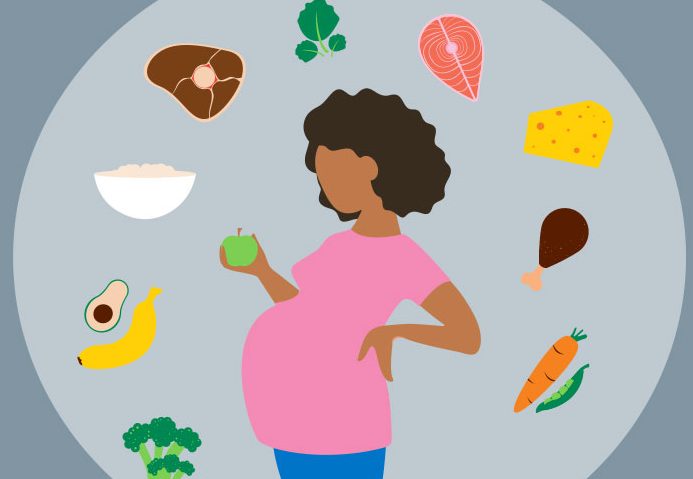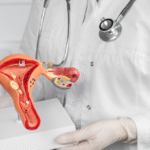Now Reading: 10 Things to Do Before You Try to Conceive
-
01
10 Things to Do Before You Try to Conceive
10 Things to Do Before You Try to Conceive

Starting a family is a big step. Preparing well can make a difference.
Many couples dream of welcoming a baby into their lives. But before beginning the journey, taking time to prepare can be crucial. This preparation can ensure both physical and emotional readiness, paving the way for a smoother transition into parenthood.
From understanding your health status to ensuring a supportive environment, there are several steps to consider before trying to conceive. These proactive measures not only boost your chances of conceiving but also help in nurturing a healthy pregnancy. Being informed and ready can alleviate stress and enhance your overall experience. This guide explores essential things to do before embarking on this beautiful journey. Let’s dive in and prepare for this life-changing adventure together.
Health Check-up
Planning a baby involves crucial steps. Prioritize a health check-up to ensure optimal well-being before conceiving. Assess overall health, update vaccinations, and discuss any concerns with a doctor.
Embarking on the journey to parenthood is an exciting and life-changing experience. Before you dive in, prioritizing a comprehensive health check-up is essential. This step ensures that both you and your partner are in optimal health, setting a strong foundation for a healthy pregnancy. Taking the time to address potential health concerns can save you from unexpected surprises down the road. So, what exactly should you focus on during your health check-up?
Consult A Doctor
Scheduling a visit with your doctor is a crucial first step. A healthcare professional can provide personalized advice based on your individual needs and medical history. They can also recommend essential tests that could reveal underlying health issues.
You might be surprised to learn how a simple consultation can uncover conditions like hormonal imbalances or nutritional deficiencies. Addressing these early can improve your chances of conception.
Your doctor will likely discuss lifestyle factors that could impact fertility. Are you aware of how stress levels or diet might be affecting your body? Taking the time to ask questions can open up new avenues for improving your overall well-being.
Review Family Medical History
Understanding your family’s medical background can offer valuable insights. Genetic conditions or hereditary diseases can sometimes play a role in fertility issues. Have you considered how this information might influence your approach to starting a family?
Discussing your family’s health history with your doctor can help in identifying potential risks. Knowing about relatives who have had fertility issues or recurring health problems can be crucial.
Have you ever thought about the impact of genetic testing? This can be a proactive approach to address any hereditary concerns. Armed with this knowledge, you can make informed decisions about your reproductive health.
Making these health check-ups a priority ensures that you’re not leaving anything to chance. Are you ready to take control and pave the way for a healthy pregnancy journey?
Balanced Diet
A balanced diet is crucial before trying to conceive. It fuels your body with essential nutrients. This enhances fertility and prepares your body for a healthy pregnancy. Eating the right foods supports hormone balance. It also boosts energy levels. Let’s explore how a balanced diet can help your journey to conception.
Nutrient-rich Foods
Focus on consuming a variety of nutrient-rich foods. Whole grains, lean proteins, and healthy fats are important. These provide essential vitamins and minerals. Fruits and vegetables are vital too. They offer antioxidants which protect your cells. Dairy products supply calcium and vitamin D. These nutrients are important for bone health. A diverse diet ensures you get all necessary nutrients.
Supplements And Vitamins
Sometimes, diet alone isn’t enough. Supplements can fill nutritional gaps. Folic acid is crucial before conception. It reduces the risk of birth defects. Iron supplements can prevent anemia. Omega-3 fatty acids support brain development. Always consult a doctor before taking supplements. They can advise the right dosage. A balanced diet with supplements can optimize your fertility.
Exercise Routine
Preparing your body for conception involves more than just eating healthy. A well-planned exercise routine can boost fertility. It helps in maintaining a healthy weight. Regular exercise also reduces stress levels. This is crucial for conception. Let’s explore how to set up an effective exercise routine.
Suitable Workouts
Not all workouts are equal. Choose activities that suit your body. Walking is a great start. It is gentle yet effective. Yoga can improve flexibility. It also calms the mind. Swimming is another excellent option. It offers a full-body workout with low impact. Avoid high-intensity exercises. They may stress your body. Consult a doctor before starting any new exercise.
Consistency And Goals
Consistency is key in any exercise routine. Aim for at least 30 minutes a day. This should be for most days of the week. Set realistic goals. They keep you motivated. Track your progress. It helps you stay on course. Celebrate small achievements. They boost your confidence. Remember, it’s not about perfection. It’s about making exercise a regular habit.
Stress Management
Stress can affect your body in many ways, especially when trying to conceive. Keeping stress levels low helps the body prepare for pregnancy. Stress management is key. It can improve mental health and boost fertility. Let’s explore some ways to manage stress effectively.
Relaxation Techniques
Relaxation techniques can help calm your mind. Deep breathing is simple yet effective. Inhale deeply through your nose. Hold your breath for a few seconds. Exhale slowly through your mouth. Repeat this several times daily to feel relaxed.
Progressive muscle relaxation is another great method. Tense each muscle group, then relax them. Start from your toes and work up to your head. This helps release physical tension.
Mindfulness Practices
Mindfulness practices help focus on the present moment. Meditation is a powerful tool. Find a quiet space. Sit comfortably. Close your eyes. Focus on your breath. If your mind wanders, gently bring it back to your breath. Practice for a few minutes each day.
Yoga combines physical movement with mindfulness. It promotes relaxation and balance. Gentle poses and breathing techniques can reduce stress. Try a yoga class or follow online videos.
Journaling is another mindfulness practice. Write down your thoughts and feelings. This can help process emotions and reduce stress. Aim to journal regularly for best results.
Sleep Quality
Before embarking on your journey to conceive, consider the importance of sleep quality. It’s often overlooked, yet vital for your health and fertility. Good sleep supports hormone balance, which can make conceiving easier. Prioritizing your sleep helps your body prepare for the challenges ahead.
Sleep Hygiene Tips
Start by establishing a consistent bedtime routine. Aim to go to bed and wake up at the same time every day, even on weekends. This helps regulate your body’s internal clock.
Turn off electronics at least an hour before bed. Screens emit blue light, which can disrupt your sleep cycle. Instead, opt for a relaxing activity like reading a book or taking a warm bath.
Ensure your bedroom environment is conducive to sleep. Keep it cool, dark, and quiet. Consider using blackout curtains and earplugs if necessary.
Evaluate your mattress and pillow. Are they comfortable? A supportive mattress and pillow can improve your sleep posture and reduce discomfort.
Impact On Fertility
Did you know that poor sleep can affect your ability to conceive? Sleep disruptions can lead to hormonal imbalances, impacting ovulation and sperm production.
Restorative sleep supports the production of reproductive hormones. These include estrogen and progesterone, crucial for conception. Prioritize sleep to support your body’s natural processes.
Consider this: if you’re constantly tired, can your body efficiently manage the complexities of reproduction? Sleep quality is not just about rest—it’s about preparing your body for a new life.
Reflect on your current sleep habits. Are they helping or hindering your fertility journey? Small changes can make a big difference in your path to parenthood.
Financial Planning
Before starting a family, financial planning is crucial. Raising a child involves many expenses. Preparing financially ensures a secure future for your family. Let’s explore key steps to prepare for parenthood financially.
Budgeting For Parenthood
Start by creating a detailed budget. List all potential expenses. Include healthcare, baby supplies, and childcare. Adjust your current budget to accommodate new costs. Track your spending. Identify areas to cut back. Saving becomes easier with a clear plan in place.
Insurance And Benefits
Review your current insurance policies. Ensure they cover prenatal and child care. Contact your provider for detailed information. Check your employer’s benefits. Some offer parental leave or childcare assistance. Having the right insurance can save money. It also provides peace of mind during pregnancy and beyond.
Lifestyle Changes
Preparing for pregnancy involves many lifestyle changes. These changes help create a healthy environment for conception. A healthy lifestyle improves fertility and overall well-being. It’s important to start making these changes early. Taking small steps now can make a big difference later.
Reduce Alcohol And Caffeine
Alcohol and caffeine impact fertility. Reducing these can improve your chances of conceiving. Moderate alcohol intake may disrupt hormonal balance. Excessive caffeine affects ovulation. Try limiting coffee and soda consumption. Opt for herbal teas and water instead. This will support a healthier reproductive system.
Quit Smoking
Smoking harms fertility and overall health. Chemicals in cigarettes affect egg quality. Smoking also reduces sperm count in men. Quitting smoking improves your chances of a healthy pregnancy. Seek support and resources to quit. A smoke-free lifestyle benefits both you and your future child.
Understanding Ovulation
Understanding ovulation is crucial before trying to conceive. Ovulation is the process when the ovary releases an egg. This happens once in every menstrual cycle. Knowing this helps in timing intercourse for conception. Let’s explore how to track your cycles and identify your fertility window.
Tracking Cycles
Start by noting the first day of your period. Count each day until your next period starts. This is your cycle length. Most cycles last between 28 to 32 days. Tracking helps identify patterns. Use a calendar or an app for accuracy. Write down your cycle each month.
Fertility Window
The fertility window is a few days in your cycle. This is when conception is most likely. It includes the day of ovulation and the five days before. Sperm can live in the female body for up to five days. The egg lives for about 24 hours. Plan to have intercourse during this window.
Genetic Counseling
Genetic counseling is a crucial step before trying to conceive. It helps you understand potential risks and your family’s genetic history. This process can guide you in making informed decisions about your future family. Let’s explore the key aspects of genetic counseling.
Assess Genetic Risks
Genetic counseling helps assess risks based on your family’s health history. You may carry genes that could affect your child. Counselors evaluate these factors and inform you about possible conditions. This assessment helps you understand potential challenges.
Knowing genetic risks can prepare you for the future. It provides a clear picture of what to expect. This knowledge empowers you to plan wisely.
Considerations For Testing
Testing options are an essential part of genetic counseling. Various tests can identify specific genetic conditions. Counselors discuss these options and their benefits. They help you decide which tests are suitable for you.
Consider your comfort level and beliefs when choosing tests. Some tests may reveal sensitive information. Understanding these aspects helps in making informed choices.
Emotional Preparedness
Preparing to conceive involves more than just physical readiness. Emotional preparedness is crucial for a smooth journey into parenthood. Understanding and addressing your feelings can help in managing the changes that come with starting a family. This process helps build a strong foundation for a healthy pregnancy. It ensures both parents are on the same page, emotionally and mentally.
Communication With Partner
Effective communication with your partner is vital. Discuss your hopes, fears, and expectations openly. This helps in aligning your goals and understanding each other better. Share thoughts about parenting styles and roles. Regular conversations strengthen your relationship. They also prepare you for the challenges ahead. Building trust and understanding now will help later when making decisions.
Mental Health Support
Mental health is a key aspect of emotional readiness. Consider seeking support from a counselor or therapist. Professional guidance can help manage stress or anxiety. It’s beneficial to address any underlying mental health issues. Join support groups to connect with others on the same journey. This offers a community for sharing experiences and advice. Prioritize self-care and relaxation techniques to maintain emotional well-being.
Frequently Asked Questions
What Are The Best Things To Do Before Getting Pregnant?
Maintain a balanced diet and exercise regularly. Consult a healthcare professional for prenatal vitamins. Stop smoking and limit alcohol consumption. Monitor your menstrual cycle to understand ovulation. Reduce stress through relaxation techniques.
How Do I Prepare My Body To Get Pregnant?
Eat a balanced diet, exercise regularly, and maintain a healthy weight. Take prenatal vitamins, especially folic acid. Avoid alcohol, smoking, and drugs. Monitor menstrual cycle to track ovulation. Consult a healthcare provider for personalized advice and checkups.
How Can I Increase My Chances Of Getting Pregnant?
Track ovulation with an app or kit for better timing. Maintain a balanced diet and healthy weight. Avoid alcohol and smoking. Manage stress through yoga or meditation. Regular intercourse enhances chances of conception.
What To Drink To Be Fertile?
Drink plenty of water to stay hydrated and support fertility. Green tea may boost reproductive health. Pomegranate juice and full-fat dairy milk are also believed to improve fertility. Avoid excessive alcohol and caffeine. Consult a healthcare professional for personalized advice.
Conclusion
Taking steps before conceiving can make a big difference. Prioritize your health. Eat nutritious meals and stay active. Manage stress effectively. Visit your doctor for a check-up. Discuss any concerns openly. Ensure vaccinations are up to date. Avoid harmful substances like alcohol and tobacco.
Consider genetic counseling if needed. Understand your menstrual cycle. Track your ovulation for better timing. Preparing well enhances your chances of conceiving. It also supports a healthy pregnancy. Embrace this journey with knowledge and care. These steps lay a strong foundation for parenthood.
Remember, every effort counts. Your future family is worth it.




















